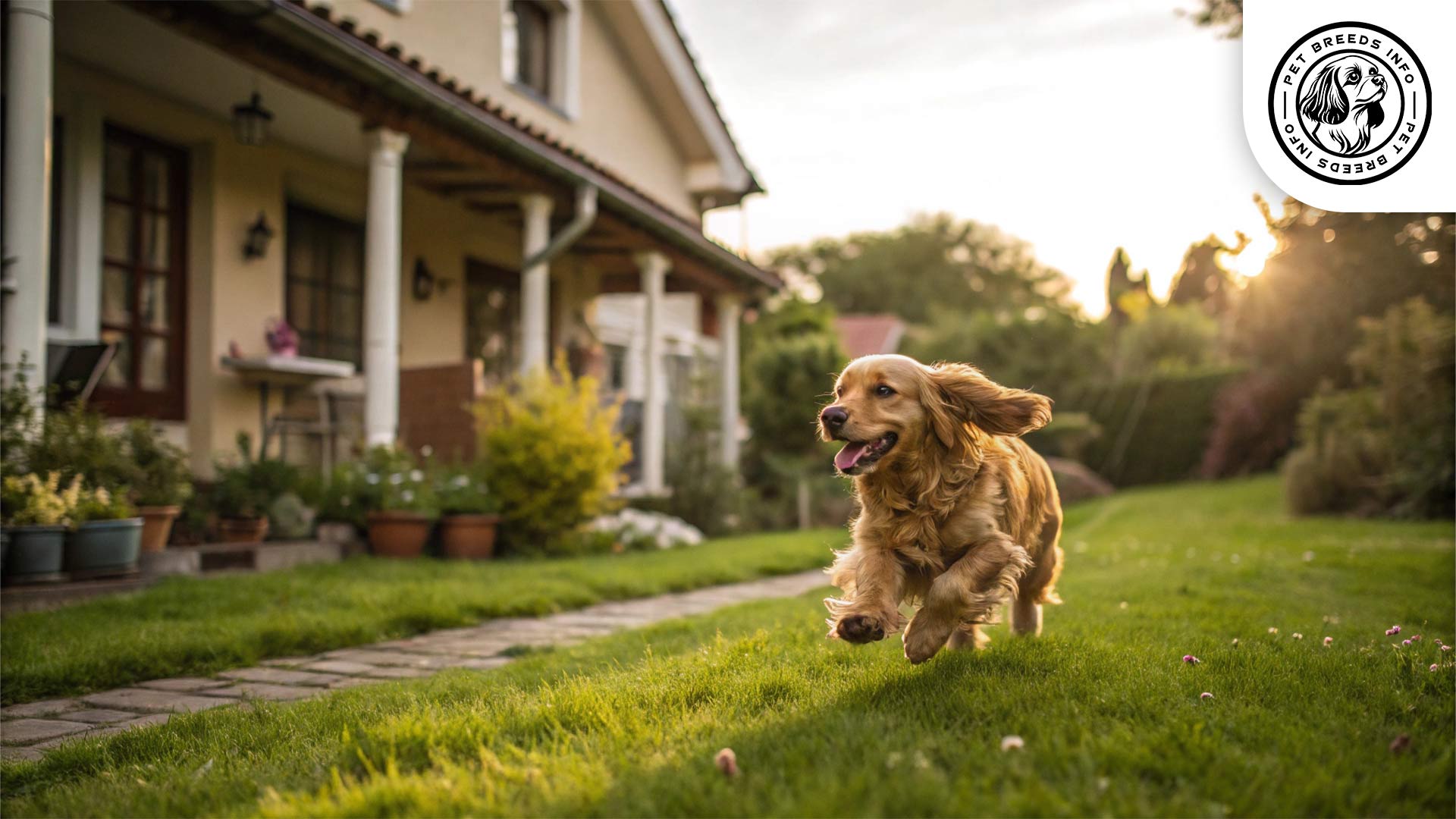Sussex Spaniel Dog Breed: Size, Health, Price & Personality
General Introduction of the Breed
The Sussex Spaniel is a rare breed of spaniel known for its unique appearance and affectionate nature. Originally developed in England, this breed was specifically bred for hunting in dense shrubbery and rough terrain. The Sussex Spaniel is one of the oldest spaniel breeds, dating back to the 18th century. Its slow yet determined hunting style made it a favorite among game hunters in Sussex County, England.
Table of Contents
| Weight | 45-50 lbs (20-23 kg) |
| Lifespan | 12-15 years |
| Diet | High-quality dry, wet, or raw food |
| Care | Regular brushing, moderate exercise, and grooming |
| Health | Hip dysplasia, heart disease, ear infections |
| Color | Golden-liver |
| Nature | Affectionate, loyal, independent |
| Price | $2,000-$4,000 |
Physical Characteristics
The Sussex Spaniel is a small to medium-sized breed with a sturdy and low-set body. Males typically weigh between 45-50 pounds (20-23 kg) and stand around 13-15 inches (33-38 cm) tall. Females are similar in size, with slight variations.
The breed has a thick, wavy coat that comes in a rich golden-liver color, a hallmark of the breed. This unique hue helps them blend with their hunting environment.
Their eyes are large, expressive, and hazel or brown in color, giving them a kind but serious expression. The ears are long, pendant-shaped, and covered in silky fur. The tail is typically docked but, when left natural, is carried low and feathered.

Personality and Temperament
The Sussex Spaniel is intelligent but can be independent and somewhat stubborn. Consistent training is essential for this breed.
It has a moderate energy level and requires regular but not excessive exercise. While it enjoys activities like walking and light play, it is not as hyperactive as some other spaniels.
This breed forms strong attachments to its family and thrives on human companionship. It is known for being affectionate and loyal.
The Sussex Spaniel is generally good with children and other pets, including dogs and cats, if socialized properly. However, its hunting instincts might cause it to chase smaller animals.
This breed is sensitive to environmental changes and does not like being left alone for long periods.
Care and Maintenance Requirements
Sussex Spaniels need daily exercise, such as moderate walks and play sessions, to keep them healthy and happy.
They can adapt to apartment living but do best in a home with a yard to explore.
The breed’s coat requires regular maintenance. Brushing at least twice a week helps prevent matting and removes loose hair. Bathing should be done occasionally when needed.
They are sensitive to extreme temperatures, particularly heat, due to their dense coat.
Read More: Soft Coated Wheaten Terrier Dog
Routine hygiene care includes nail trimming, ear cleaning to prevent infections, and regular dental care to maintain oral health.

Diet and Nutrition
A balanced diet consisting of high-quality dry or wet dog food is recommended for the Sussex Spaniel. Some owners also incorporate raw or home-cooked meals.
This breed is prone to obesity, so portion control is essential. Feeding should be divided into two meals per day to promote healthy digestion.
Foods to avoid include chocolate, grapes, onions, garlic, and fatty or highly processed human foods.
Health and Common Medical Issues
The Sussex Spaniel is generally a healthy breed but can be prone to certain genetic conditions, including hip dysplasia, heart disease, intervertebral disc disease, and ear infections.
Their lifespan typically ranges between 12-15 years with proper care.
Regular veterinary check-ups, vaccinations, and parasite control are essential for maintaining good health.
Training and Behavior Management
Training a Sussex Spaniel can be moderately easy but requires patience and consistency. They respond well to positive reinforcement techniques.
Early training and socialization are key to preventing stubbornness and developing good manners.
Short training sessions focusing on rewards and encouragement work best to keep them engaged.
Read More: Staffordshire Bull Terrier Dog
Interaction with Other Animals and Humans
Known for their friendly nature, Sussex Spaniels are excellent companions for families with children. They are gentle and patient.
They enjoy the company of other pets, especially if raised with them from an early age.
This breed thrives in a family environment but is also suitable for individuals seeking a devoted companion.
The Sussex Spaniel prefers to stay close to its owner rather than being overly independent.

Price and Availability
The cost of a Sussex Spaniel puppy can range from $2,000 to $4,000 depending on the breeder, lineage, and location.
When adopting or purchasing this breed, it’s essential to choose a reputable breeder who conducts health screenings.
Due to their rarity, rescue organizations and breed-specific adoption centers may also be considered as an alternative way to find a Sussex Spaniel.
Conclusion and Final Thoughts
The Sussex Spaniel is a charming, loyal, and affectionate breed that makes an excellent family pet or companion. However, due to its grooming requirements and sensitivity to environmental changes, it is best suited for dedicated owners who can provide time and attention.
This breed thrives in a home where it receives love, moderate exercise, and regular grooming. Potential owners should be prepared for the breed’s attachment needs and moderate exercise requirements.
The Sussex Spaniel is a fantastic choice for those looking for a calm yet affectionate companion with a rich history and unique personality.
Read More: Spinone Italiano Dog
FAQ
Are Sussex Spaniels good with children?
Yes, they are gentle and patient, making them great companions for families with children.
How often should I groom my Sussex Spaniel?
Brush at least twice a week to prevent matting and maintain their coat. Bathing should be done occasionally as needed.
Can Sussex Spaniels live in apartments?
Yes, but they thrive better in homes with yards where they can explore. Regular exercise is important for them.
What kind of exercise does a Sussex Spaniel need?
Moderate walks, light play, and some outdoor time are sufficient. They enjoy activity but are not overly energetic.





